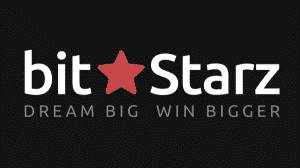Dummy Stores Websites – a Bitcoin Gambling Alternative for US players?
 A new widespread alternative for masking gambling transactions has been recently revealed, one that uses fake store websites as a front for taking money from interested players and channeling it back and forth to an online casino. The story, which is a Reuters exclusive based on several months of research, was launched after a fabric outlet advertised online suspiciously failed to deliver any products to the news agency’s reporters.
A new widespread alternative for masking gambling transactions has been recently revealed, one that uses fake store websites as a front for taking money from interested players and channeling it back and forth to an online casino. The story, which is a Reuters exclusive based on several months of research, was launched after a fabric outlet advertised online suspiciously failed to deliver any products to the news agency’s reporters.
According to the story, there’s an ecosystem of fake online businesses that spans across Europe, with the UK being an especially prominent location. Most of these businesses target players from the US where online gambling is strictly regulated, leaving the majority of players to resort to alternative ways like using Bitcoin casinos or these fake websites.
A Network of Several UK Sites
Reuters’ team discovered 7 websites located in Europe that were involved in “transaction laundering”, i.e. taking payments on behalf of other merchants. The transactions were masked as purchases for a wide range of products, including flags, gift wraps, and DVD cases, among other things. However, once a product was ordered and paid for, the stores did nothing to deliver the items, which initially prompted the reporters to investigate further.
Upon ordering products from the website and not receiving them, the news team contacted a support agent from the payment processor only to be told that the online outlets didn’t sell any products but rather helped in processing gambling transactions, most of which were for US citizens. By using different credit card codes assigned to commercial products no alarms were raised with the authorities, since there were no transactions marked with the code for online gambling, which was 7995.
The fake stores were discovered after a document was posted online from an anonymous contributor that linked back to three online stores which advertised but didn’t actually sell products. The stores were run by a UK company called Sarphone Ltd, while the payments were processed by Agora Online Services – an Icelandic payment services provider that handles transactions for “hundreds” of online gambling platforms. One of Agora’s directors, Andrej Brand, declined to comment on the story, while the second director was completely out of reach.
Only a Small Speck on a Global Scale
After the initial order placement, more purchases were made on the six remaining sites, all of which were owned by UK companies. Each of the sites didn’t deliver the product but just refunded the reporter’s card after a while, while one of the three support agents told the news agency that most of the people who are charged by the stores were American citizens and that support team was based in Germany.
Reportedly, the sites served as fronts for online casinos that offered services in restricted territories. The way the process worked was that a gambling site would take a payment from a restricted player as usual, but then actually reference the transaction back to the fake stores, adding legitimacy to it. The outlets themselves were set up in a way that made them hard to discover and weren’t really meant for the regular public.
After the team approached the stores with the story, all seven websites remained active but stopped accepting payments. The uncovered UK companies that owned the stores were linked back to Simon Dowson, a Consett resident who was previously involved in setting up UK business fronts for overseas companies that dealt with online poker, scams, and even sales of health-food products. The sites are believed to be a small part of an intricate global ecosystem.







